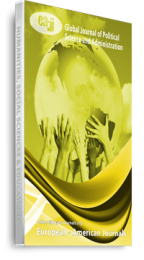The presence of parties in the political system is very decisive order of politics that shows the awareness and positive response of society to participation development. In this context political parties have a ‘strategic role’ as catalysts and independent mediators between government [state organizers] and their citizens. However, Indonesia’s law political reforms show that political parties have ‘failed’ to ‘play’ the role. Is it true that the party failed? To answer this study the aim [i]. Describes the relationship of political parties with people’s political participation. [ii]. Describes the reality of the role of the party in building its citizen’s participation between ideal desires and the reality of politics. [iii] Describe the strategic formulation of the role of the [function] of the party as an effort to increase people’s participation. The results of this study indicate that [i] The relationship of political parties to the political participation of the community depends [determinant] on the behavior of party politicians [actors] and their role in national and local politics. [ii]. Experience during law political reform shows that the party’s ideal will contradict the reality of its role in building people’s political participation. Party dominance in all areas of state life reflects the party’s ‘dominance’ with a negative character. This reality is what causes the level of confidence of people about party ‘relative’ continues to decline. So direct participation also decreases. [iii]. The study finds that the strategic formulation of party roles as an effort to increase people’s participation lies in the ‘political education pattern’ of the party both internally [regeneration through political recruitment] and external efforts to the people of its constituents. ‘Failure’ in the framework of obedience is a crucial part of political education that determines the level of trust of the people [of society] to his party.
Keywords: Party Domination, People's Political Participation and Political Education

